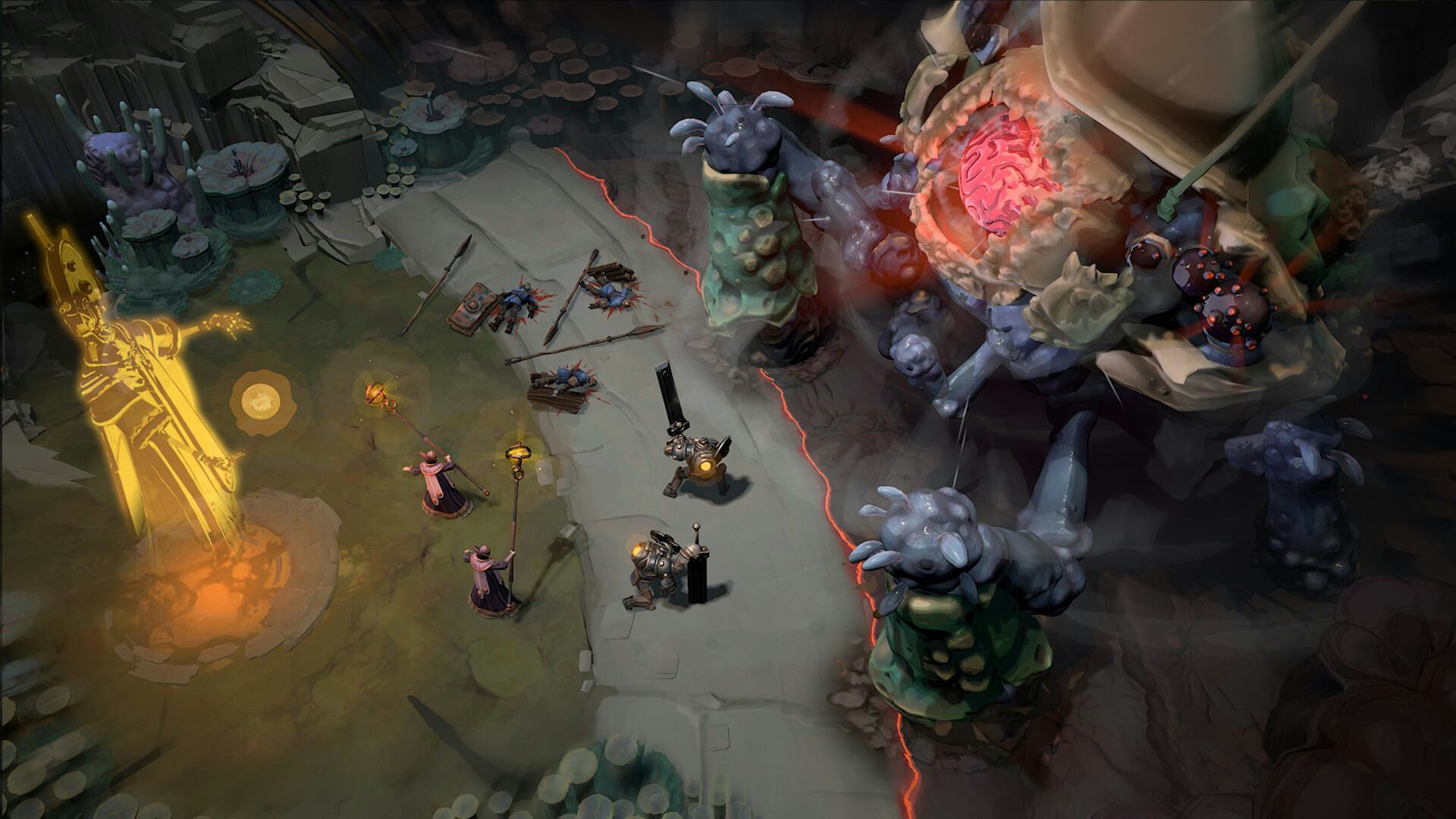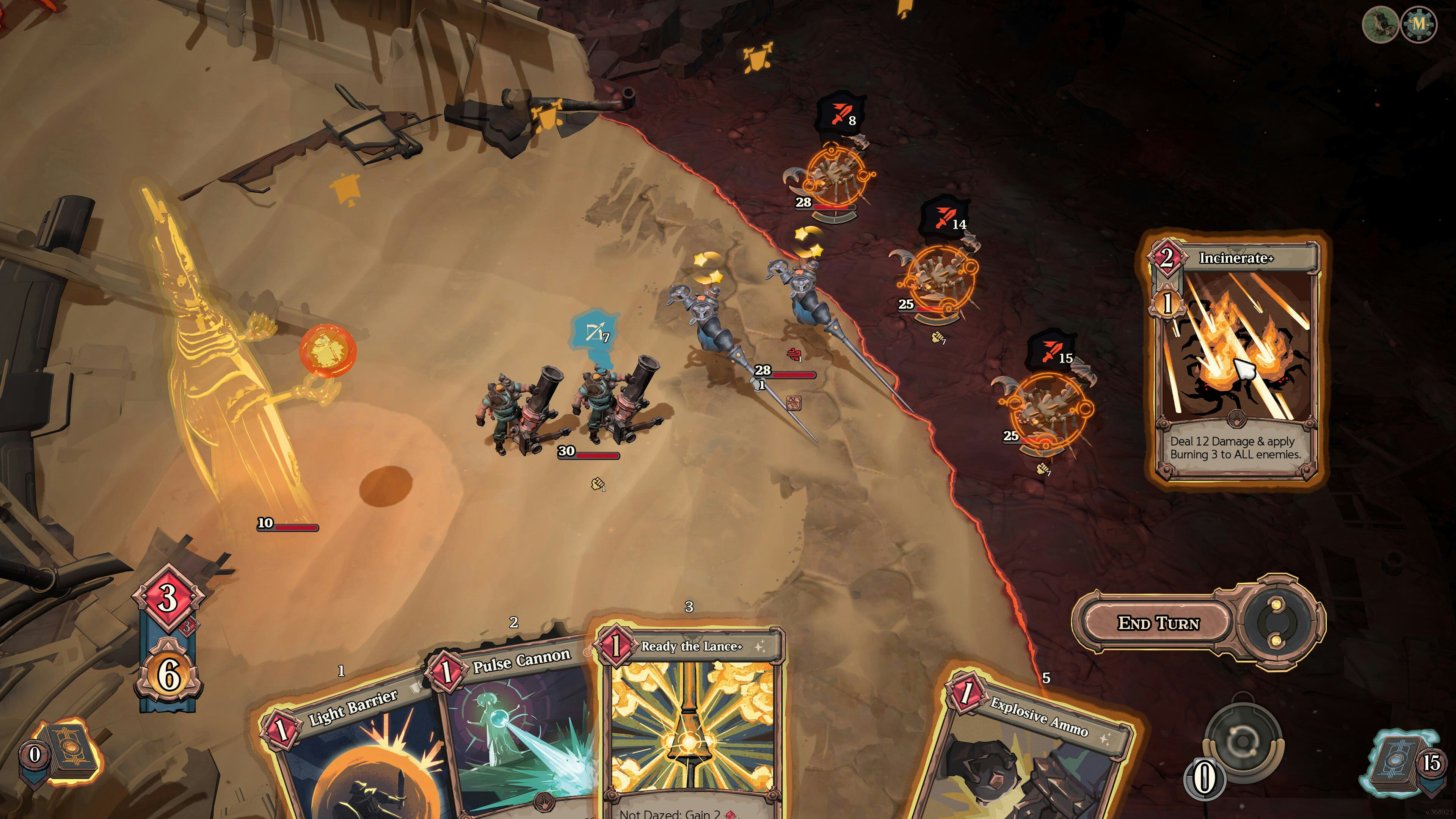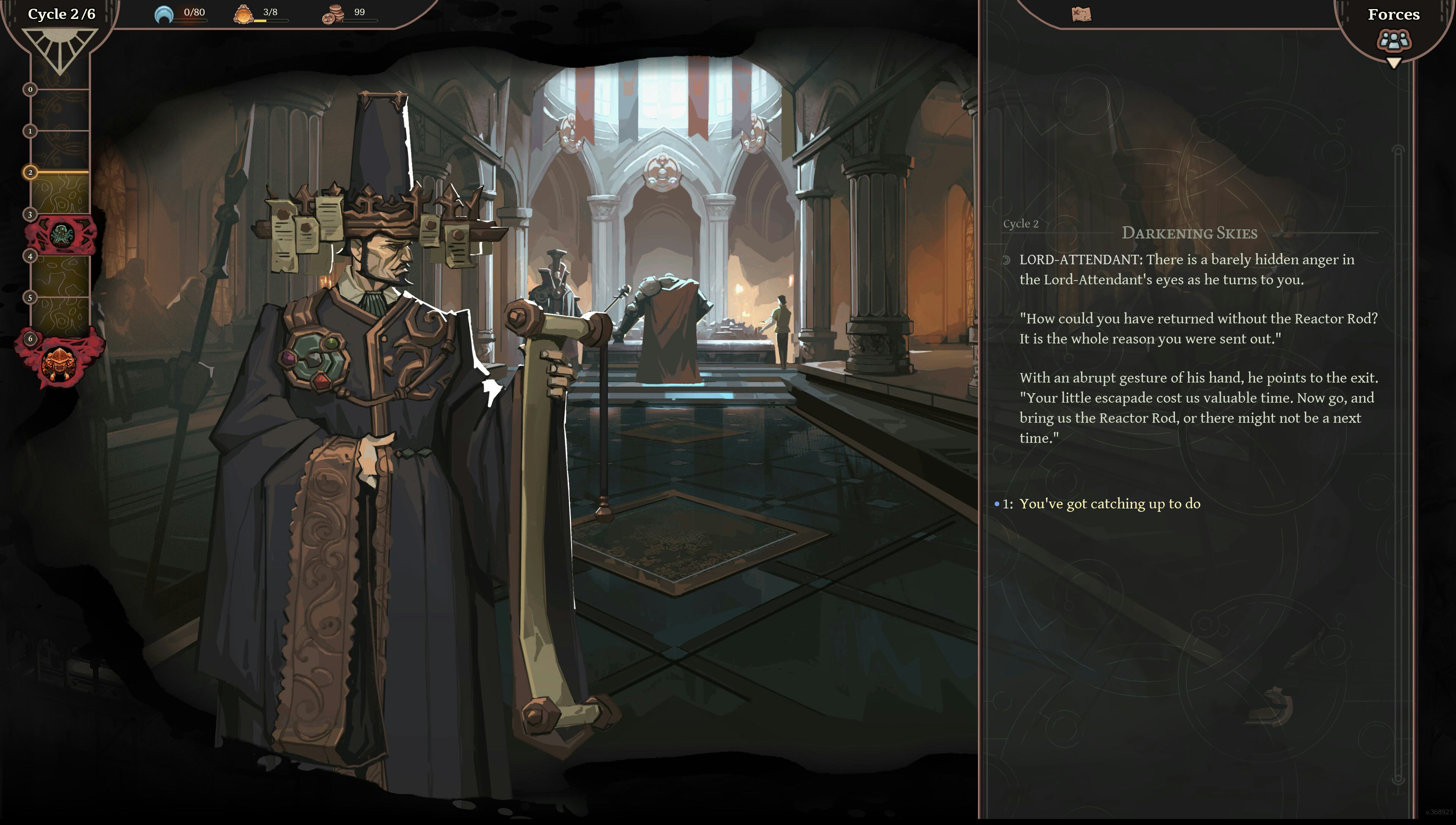
In deckbuilder games, the battlefield is everything. You might pick your next fight from a map or stop to buy new cards between encounters, but combat is where the meat of the strategic decisions are made. That doesn’t have to be the case, though, and one new roguelike deckbuilders brings some of the strategy of board games into the mix, asking you to make tough choices and push your luck even in the relative safety of your home base.
You may have already gotten your hands on As We Descend with a Steam Next Fest demo earlier this year. That’s where I first played and enjoyed it. Now, it’s headed to Steam Early Access where it’s expected to stay for about a year, and there’s more to like than ever.
As We Descend begins in the subterranean City-Vault, a stronghold drilling into the core of the planet to survive and destroy humanity’s enemies. A power surge spells the end of the forcefield protecting the city and you’re sent to gather the reactor rods needed to get it running again. The game plays out in cycles, each consisting of a few combat and social encounters, all based around cards.
Combat in As We Descend will feel familiar to fans of strategic card games like Slay the Spire, but it’s a decidedly different beast. In each battle, you have one to four units to control, plus the Lantern, a power source tied directly to the City-Vault that keeps you safe in the wild and which you need to protect or it’s game over. Each unit and your Lantern has its own deck of cards, meaning you can drastically change which cards you bring into a given battle by swapping out which units you bring.

In most deckbuilders, if you or an enemy play an attack, it’s going to land, and the only recourse is blocking. But in As We Descend’s battlefields, both sides have two distinct zones — guard and support. Melee attackers on both sides are forced to attack anyone in the guard zone first, while ranged attackers can reach into the support zone. Some enemies have attacks that can hit an entire zone, but that miss entirely if that zone is empty. Most units also have an auto-attack that fires at the end of the round, but can generally only be used from one zone or the other, and some cards offer bonuses for being in one zone or for switching between them during a turn. That makes juking back and forth between zones an extremely important part of your strategy, and keeps the game’s turn-based battles feeling exciting.
After winning a battle, you use a team of scavengers provided on each expedition to dig up treasure, with a higher risk of failure based on how rare the treasure is and how many surviving scavengers you have. Then, a whole new layer of the game opens up back home. The treasure you find outside has many different uses in the City-Vault. Some plants let you heal your units, while ancient machines grant you new cards.

Competing interests battle it out in the city, and you might have to choose which side you want to hand over your finds to, or who you let talk you into a better deal. Along with the expedition cards that send you into battle, you start each cycle with a few allies who run errands in the city, each with different stats that affect what you’ll find. In the game’s Early Access version, I haven’t seen too many long-term changes brought about by these decisions, but some are there already. A chance encounter in a marketplace can unlock a new character offering unique bonuses, and picking whether to side with workers or their bosses changes what rewards a quest offers and opens new possibilities in the future.
As We Descend is still far from complete, but it’s already got a lot going for it. I’ve sunk hours into multiple runs now, before finally defeating the level three boss that ends the current version. It’s a brutal game, and one bad encounter can take a long time to recover from, but I haven’t yet seen the doom spiral that can sometimes make it impossible to come back from a single loss. Even in fights that left units defeated or gravely wounded, or ones I was certain I wouldn’t make it out of alive, I’ve found more often than not that clever play can beat the odds. After a run, you also gain a variety of unlocks based on your actions, which let you use new units and alternate skills for the ones you already have, or switch to a new faction with an entirely different playstyle. As We Descend’s combat already feels rock solid, and if the stories and strategy of its city management layer can be fleshed out more in Early Access, it will be a top contender for the year’s best roguelike deckbuilder.







